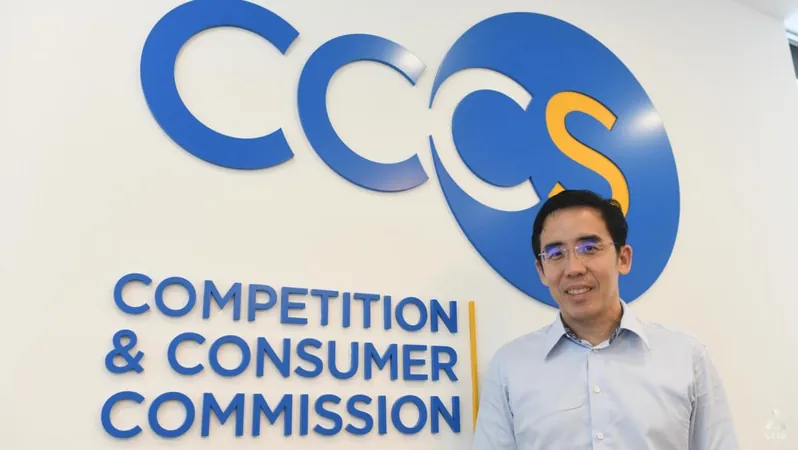
Exposed: The Fight Against Deceptive Business Practices in Singapore
2024-10-03
Author: Siti
In Singapore, a growing concern over consumer disputes has prompted the Competition and Consumer Commission of Singapore (CCCS) to ramp up its enforcement efforts against unscrupulous retailers. This proactive approach aims to protect consumers from unfair tactics, including misleading reviews and false discounts.
Alvin Koh, the chief executive of CCCS, emphasized the organization’s determination in an interview this September: "We are taking bolder steps. We want to go out there, we want to take action so that other people who are interested to do the same thing will be deterred." Since assuming the additional consumer protection mandate in 2018, CCCS has seen consumer protection cases surge to one-third of its total workload, a trend highlighted by nearly 14,000 complaints reported by the Consumers Association of Singapore (CASE) in 2023.
High-profile enforcement actions this year reflects the range of deceptive tactics employed by businesses. For instance, Sterra, a water purifier manufacturer, is currently under investigation for its misleading claims that tap water was unsafe unless filtered. The investigation uncovered that Sterra was also engaged in "strikethrough pricing," providing false discounts that misled consumers about the authenticity of prices. In August, the company publicly apologized and committed to discontinuing these unfair practices.
Additionally, the beautification industry faced scrutiny when Nail Palace became the first business in Singapore to incur penalties for contempt of court due to misleading advertising related to its services. CCCS also issued warnings to Loft Home Furnishing for fabricating five-star reviews to mislead potential customers.
In a bid to enhance efficiency, CCCS is increasing its workforce dedicated to consumer protection by about 10%, bringing the total number of case team members to around 50, with 10 focused solely on consumer advocacy. Koh suggested that this enhanced capacity will expedite investigations and increase accountability among consumers.
"To prevent unfair practices before they even impact consumers" is CCCS’s primary aim, distinguishing its role from that of CASE, which mainly mediates between consumers and businesses. The regulatory body wields legal authority to implement court orders against companies violating the Consumer Practices (Fair Trading) Act.
Koh explained that systemic or egregious cases—illustrated by the recent Sterra investigation—trigger the need for CCCS’s intervention, signaling to consumers that their complaints matter. "Consumers should be looking out for other consumers as well," he added, highlighting the need for vigilance in the marketplace.
Beyond addressing current grievances, CCCS is set to tackle new challenges, particularly greenwashing and deceptive online practices known as "dark patterns." Greenwashing involves misleading claims about a product's environmental benefits, while dark patterns manipulate users into making unintended purchases or subscriptions. Starting next year, CCCS will focus efforts on regulating these pressing issues, with guidelines for accurate and truthful advertising anticipated to be developed in the coming months.
Koh's pending plan also includes educating consumers to navigate the increasingly complex e-commerce landscape, reducing the risk of falling victim to manipulative business practices. "You shouldn’t be going around the internet feeling like you have to be ultra-attentive," he concluded. "Regulation must safeguard consumers against deceptive actions that exploit their trust."
The commitment of CCCS to uphold fair competition and consumer rights signals a new era for Singapore's marketplace—one where deceitful business practices are met with swift action, and consumers can confidently make informed choices.



 Brasil (PT)
Brasil (PT)
 Canada (EN)
Canada (EN)
 Chile (ES)
Chile (ES)
 España (ES)
España (ES)
 France (FR)
France (FR)
 Hong Kong (EN)
Hong Kong (EN)
 Italia (IT)
Italia (IT)
 日本 (JA)
日本 (JA)
 Magyarország (HU)
Magyarország (HU)
 Norge (NO)
Norge (NO)
 Polska (PL)
Polska (PL)
 Schweiz (DE)
Schweiz (DE)
 Singapore (EN)
Singapore (EN)
 Sverige (SV)
Sverige (SV)
 Suomi (FI)
Suomi (FI)
 Türkiye (TR)
Türkiye (TR)